Funding Black feminism: Hilary Pennington with Tynesha McHarris

Transcript
[Tynesha McHarris, a Black woman in her 30s with black curly hair, wearing a black shirt and a gold necklace, sits for a video interview with Hilary Pennington, a white woman with blonde hair, wearing a white shirt and gold earrings, sitting in an orange chair.]
Tynesha: I think, when you find yourself on a cliff, the scary part is, you know, you feel the dangling. I think that’s when the things that we thought was never possible happen because what else do we have to risk? And I think we’re in that kind of moment. So I am deciding to be hopeful. I think we might break some things we never thought could be broken.
[on-screen graphic: Social Justice Leaders on What Matters, Hilary Pennington with Tynesha McHarris]
[on-screen text: Hilary Pennington, Executive Vice President of Programs, Ford Foundation]
Hilary: Tynesha McHarris is a Black feminist from the United States. She brings over 15 years of experience advocating for racial, gender, and youth justice and social movements in organizations and philanthropic institutions. And one of her primary roles is as a co-founder of the Black Feminist Fund. And, Tynesha, I would love to start there. Tell us about the Black Feminist Fund, why it was created, and why it is so transformative.
[on-screen text: Tynesha McHarris, Co-Founder, Black Feminist Fund]
Tynesha: So the moment you and anyone asks me about the Black Feminist Fund—and I mean it sincerely—um, my heart jumps a bit. And I’ll tell you a little bit about why.
So back in 2013, where most important conversations and decisions and radical world-changing things happen, it was at a kitchen table, uh, with my dear friend and colleague in the work, Hakima Abbas. And we were both frustrated and concerned about how difficult it was to move resources to our movements, and specifically for Black women to move resources to our work in ways that acknowledged and understood our full humanity. And we spent, I think, hours that day just, like, dreaming up what a vehicle would look like that would move resources to Black women’s work.
We spent eight years deciding to say that this does not have to be an alternative universe. We can actually build a vehicle that would move resources to Black feminists in ways that not just understood their humanity or the power of movements and what it can do to transform societies, but really move resources in ways that felt like we loved them, um, and move resources that were in solidarity. And so we spent eight years taking a dream seriously, and now here we are. It’s actually in the world.
Hilary: That’s pretty amazing. I would love to hear you outline your definition of Black feminism and why it matters to be supported as its own school of thought, right—a lens that is influencing many of the social movements today. So, tell me, how would you define Black feminism?
Tynesha: Black feminism is my church. And so, um, so if I get a little too preachy—
Hilary: Take me there!
Tynesha: I know. That’s right. I, um, so Black feminism, as you’re right, is its own school of thought. At the heart of Black feminism is acknowledging the inherent value of Black women, Black femmes, Black nonbinary people, Black trans people. So the idea of the inherent value, um, is core and central to Black feminism and its analysis and the way of being. Um, and so the analysis around Black feminism is the, the core belief that we can’t separate out racial injustice, gender injustice, multiple different forms of class, that class oppression that, in the words of Kimberlé Crenshaw, that these are all intersections that need to be held, understood together. Because if, because if we try to fight one battle—so if I’m trying to fight racism at the cost of sexism—we all lose. We’re actually not fighting racism well.
And so Black feminism is about starting with the last first. So that’s a core principle. And not that we’re the last because of our humanity. It’s the last because it’s often considered the least. So if you start with the last, not only are you able to start, um, with folks who are often most vulnerable and harmed but you start with folks who are actually able to see the entire way and see the way these systems harm people. But also you get to start with people who have been—whose genius has kept them not just alive but whose genius has been able to really, um, create foundations for, for multiple movements. So, that’s Black feminism.
The Black part, you know, it is about, you know, folks who—uh, Blackness is complicated, right, um, based on context and geography and history. But it was important for us to acknowledge that there is a shared struggle with folks, um, across the African continent, across Afro-descendant people everywhere, and our shared struggle unites us. Um, and so when you take the Black feminist, um, movements and leaders across the world, the idea is saying that we have a shared struggle, while it is unique depending on your context. And when we are together, when we fight together, when we build together, and when we dream together, we are, we are stronger and more able to win together.
Hilary: That is so profound and so eloquent. And now, for a second, to the way the Black Feminist Fund is going to operate, because you will also be funders.
Tynesha: Yeah.
Hilary: Um, so I’d love to hear you talk about how you think about your relationship with your partners.
Tynesha: We often say, what does it look like to fund movements like we want them to win, right? And if we want movements to win, we know that it takes a long time to build power, to strategize, to vision, to organize, to mobilize, to build bases. Um, and so one of the ways that we are hoping to do that in the structure of how we want to move and redistribute resources is by long-term core flexible support. Our ultimate goal is to get to the place where we can give grants to organizations in eight-year cycles.
The second is, you know, one of the things that we are hopeful for—and it’s a part of a Black feminist principle—is that we want to disrupt the concentration of even decision making on how resources get moved. So as we, like, democratize decision making, that means a lot of people have to be involved in the process. And so we have a board—we call it the Movement Leadership Council. There are Black feminist movement leaders from around the world who are going to help us think through and be in conversation around priorities.
Hilary: What a standard to set for the field to, to think the way you’re thinking. I love that. Tynesha: And I think that the idea is that the Black Feminist Fund will move resources to movement partners. But our real job is to, one, not be permanent, like not for, not forever and ever. It is to—
Hilary: But for long enough—
Tynesha: For long enough, like, “Yeah, we ain’t goin’ away for a little while.” But can we be, um, can we be grounded for at least a generation and move resources to movements and then be able to catalyze even more support beyond the fund—to be able to model what it looks like to be in true solidarity with Black feminist movements and move not just more resources but continue to move healthier resources, better resources, and resources that actually come along with believing in movement. And going back to that principle that I shared earlier, believing in the inherent value of Black women and Black femmes and Black nonbinary people.
Hilary: I think that that’s just so important. So let’s talk about the Global South. We know we need to shift power from the Global North to the Global South—although that binary also needs to be contested now, given the movement of so many people across borders, where they belong to multiple places at the same time. But how is the growing diversity of the Global South contributing to advancing movements for social justice and rights and opportunity?
Tynesha: Movements and leaders and Black feminists in the Global South have been generous, um, to, one, support my own learning and support the learning of a lot of us, um, around the world. So I just honor them, um, yeah, because the Black Feminist Fund would not be possible without Black feminists in the Global South period. Whether it’s the organizing and activism happening in Ghana and in Nigeria, organizing happening in South Africa, whether it’s organizing happening by Black feminists across Latin America—that some of the most creative and genius approaches is coming from the Global South.
Black feminists in the United States are challenged by thinking about how we address and respond to state violence, how we keep folks safe from patriarchal violence and harm, and the models around what safety can look like and what peace can look like. We are looking to our sisters and siblings in the Global South who have incredible experience at creating and innovating and responding to multiple forms of violence but also responding to multiple forms of brilliance. And I will tell you that we are looking to the Global South for leadership and direction because some of the most thoughtful and creative models and possibilities is coming out of the Global South.
Hilary: Those are going to be really, really important transfers of knowledge and, and sharing, you know, I think of expertise and insight.
So I want to ask you a last question. What makes you hopeful? What keeps you going?
Tynesha: My family, uh, my great-grandmother’s memory, um, Black feminists, the Black Feminist Fund team. And I find myself to be more hopeful than I’ve ever been, because I think it’s in moments of fear that we see what we’re made of. And I am finding that in moments of fear and uncertainty that I am seeing many of us rise to an occasion, and I’ve seen it—we’ve seen it around the world. And while I don’t want my hope to be rooted in pain or struggle—that’s not what I’m saying—but I, but I am, I am—my hope is rooted in people who find beauty and possibility, even when it’s hard. That’s what’s giving me hope. I think, when you find yourself on a cliff, the scary part is, you know, you feel the dangling. I think that’s when the things that we thought was never possible happen because what else do we have to risk? And I think we’re in that kind of moment. So I am deciding to be hopeful. I think we might break some things we never thought could be broken.
Hilary: Oh, I just want to thank you for that and, and the “leader-full” way you operate in the world. Um, I feel so lucky to get to see you in several different contexts as, uh, as that kind of a creator and, and mover and transformer. Um, so thank you.
[on-screen text: What’s your take? Join the conversation]
[on-screen graphic: Ford Foundation logo]
Accessibility Statement
- All videos produced by the Ford Foundation since 2020 include captions and downloadable transcripts. For videos where visuals require additional understanding, we offer audio-described versions.
- We are continuing to make videos produced prior to 2020 accessible.
- Videos from third-party sources (those not produced by the Ford Foundation) may not have captions, accessible transcripts, or audio descriptions.
- To improve accessibility beyond our site, we’ve created a free video accessibility WordPress plug-in.
What is Black feminism and how is the Black Feminist Fund moving funds to work led by Black women?
In this episode of #OnWhatMatters, Black Feminist Fund co-founder, Tynesha McHarris, speaks with Ford Foundation vice president of program, Hilary Pennington, on her work and how she dreamed up this new radical philanthropic initiative at her kitchen table.
“When you find yourself on a cliff, the scary part is, you know, you feel the dangling. I think that’s when the things that we thought were never possible happen—because what else do we have to risk? And I think we’re in that kind of moment, so I am deciding to be hopeful. I think we might break some things we never thought could be broken.”
You can learn more about the Black Feminist Fund and their work in our Q&A with the three co-founders.
Other videos in this series
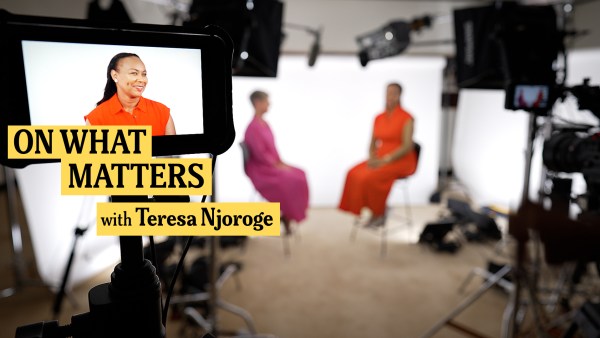
The Power of Restorative Justice With Teresa Njoroge and Hilary Pennington
Teresa Njoroge, founder and CEO of Clean Start Solutions and criminal justice reform advocate, and Hilary Pennington, executive vice president of programs at the Ford Foundation, discuss helping people who have been through Kenya’s justice system find new dignity and hope through employment.
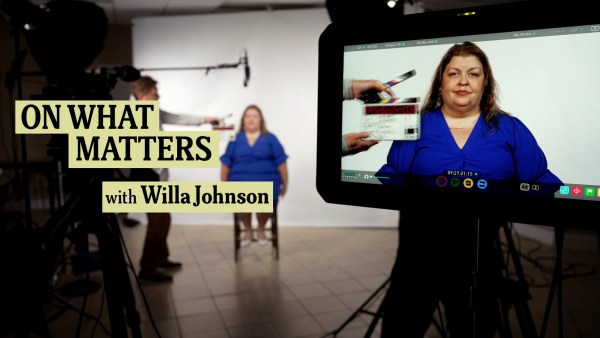
The Power of Appalachian Art With Willa Johnson and Sarita Gupta
Willa Johnson, director of the film department at Appalshop, and Sarita Gupta, vice president of U.S. programs at the Ford Foundation, discuss heartland creativity and amplifying rural narratives.
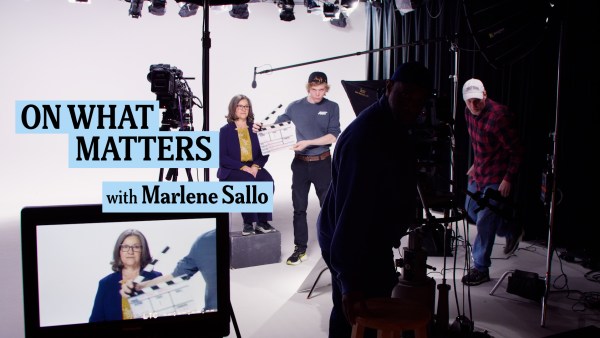
Centering Disability Rights and Justice With Marlene Sallo and Hilary Pennington
Marlene Sallo of the National Disability Rights Network and Hilary Pennington of the Ford Foundation talk about the systems that support and fail the disability community and how disability justice is essential to building a multiracial democracy.
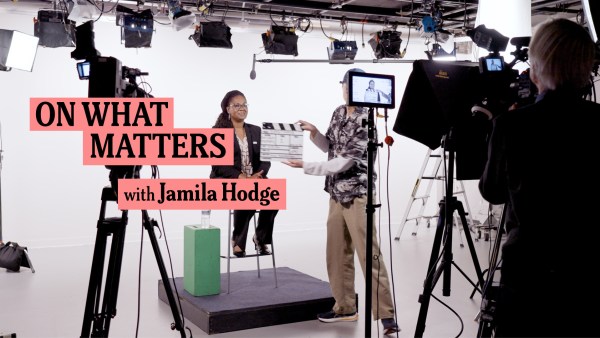
Advancing Community-Based Violence Intervention With Jamila Hodge and Sarita Gupta
Jamila Hodge of Equal Justice USA and Sarita Gupta of the Ford Foundation talk about community-based violence intervention and the importance of promoting a trauma-informed public health response to violence. Jamila explains how, if we want to address institutional racism, we must address the root causes of violence and center those most impacted.
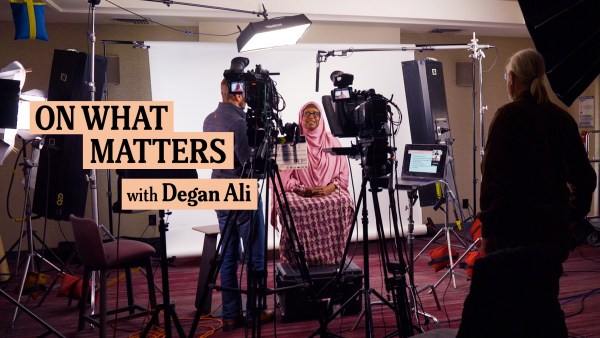
Decolonizing Humanitarian Aid With Degan Ali and Martín Abregú
Degan Ali and Martín Abregú talk about shifting to locally led development and decolonizing aid. Degan shares why we must rethink current structures of providing aid and have local civic society organizations play a stronger and more strategic role in global policy debates.
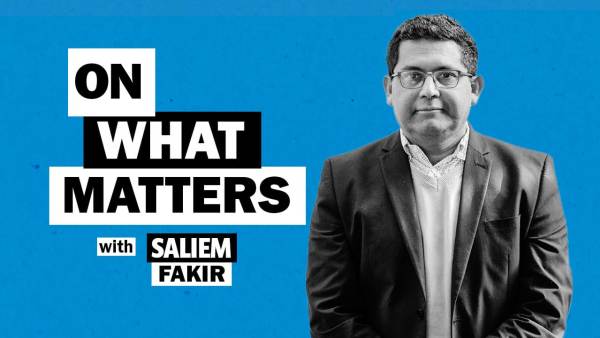
Working Towards a Truly Just Energy Transition with Hilary Pennington and Saliem Fakir
Saliem Fakir, the founder and executive director of the African Climate Foundation, the first grantmaking foundation in Africa focused on furthering solutions for sustainable climate development, joins Hilary Pennington to discuss the urgent need to address climate change and South Africa’s promising Just Energy Transition Partnership.
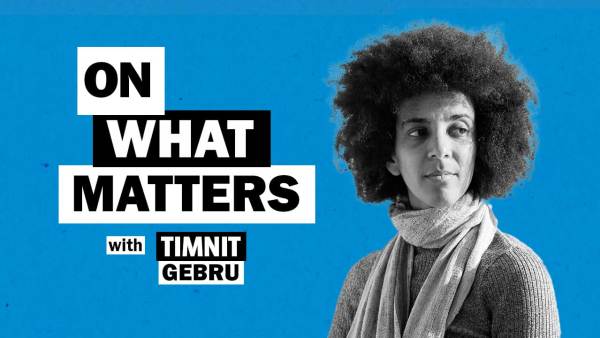
Making AI systems more just with Hilary Pennington and Dr. Timnit Gebru
Dr. Timnit Gebru, founder and executive director of the Distributed Artificial Intelligence Research Institute (DAIR), joins Hilary Pennington to discuss how an inclusive and collaborative approach to creating AI systems can address the uneven benefits and harmful impacts of technology on society.
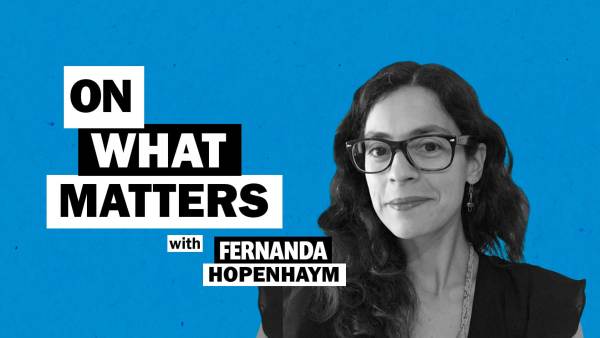
Holding corporations accountable with Hilary Pennington and Fernanda Hopenhaym
Fernanda Hopenhaym is the co-executive director of the Project on Organizing, Development, Education, and Research (PODER), a nonprofit in Latin America that pushes for corporate accountability for human rights and environmental abuses. Fernanda and Hilary discuss how to keep businesses ethical and transparent by using feminist and human rights organizing strategies.
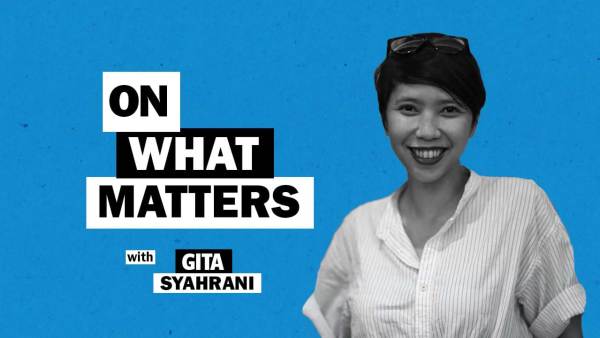
Saving forests while eradicating poverty with Hilary Pennington and Gita Syahrani
Hilary Pennington talks with Gita Syahrani about how engaging Indigenous and local communities in sustainability efforts can lead to greater economic mobility for them. Her work shows how civic engagement at the district level can have global impact.
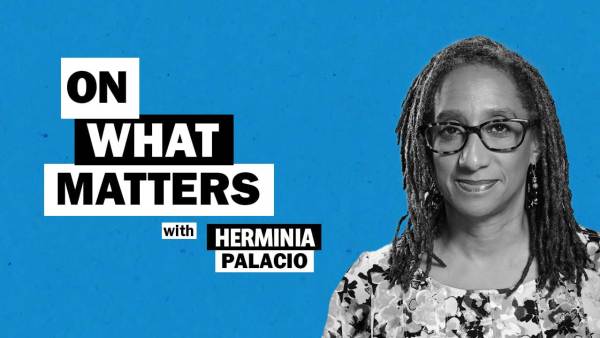
The future of reproductive justice with Hilary Pennington and Dr. Herminia Palacio
Hilary Pennington and Dr. Herminia Palacio discuss this moment in the reproductive justice movement, how different communities are impacted, and what the United States can learn from countries that have won gender and reproductive health victories.
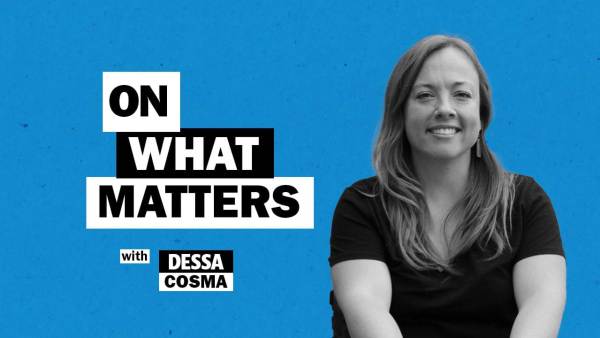
Reimagining how we think about disability with Hilary Pennington and Dessa Cosma
Hilary Pennington talks to Dessa Cosma about disability justice and inclusion. They discuss the importance of using intersectional approaches to activism and how to restructure the economy to be more just for disabled people.
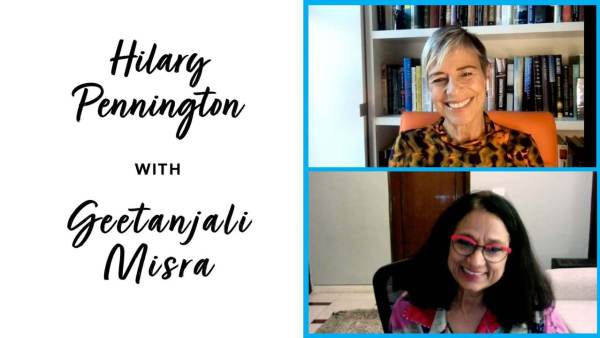
The future of feminism: Hilary Pennington with Geetanjali Misra
Geetanjali Misra has bore witness to the evolution of feminism both on the ground in the U.S. and India and in her work as an activist. Seeing patterns change and movements shift, she speaks about the importance of intersectionality in building a more inclusive feminist future.
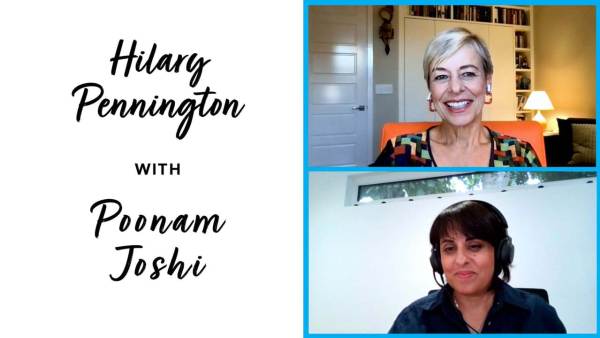
COVID’s impact on civic space: Hilary Pennington with Poonam Joshi
Civic space is essential for democracy. It allows people to participate in society and communicate freely and without discrimination. But, according to Poonam Joshi, director of Funders’ Initiative for Civil Society director, there are threats that need to be addressed before we solidify the civil society we want in the future.

Philanthropy and environmental justice: Hilary Pennington with Laura García
When it comes to climate change, time is running out. But communities all over the world are working on solutions, and philanthropy needs to center their ideas and perspectives to win this fight. Laura Garcia, CEO of GlobalGreen Grants Fund, shares how funding grassroots movements can address challenges at the intersection of social and environmental justice.
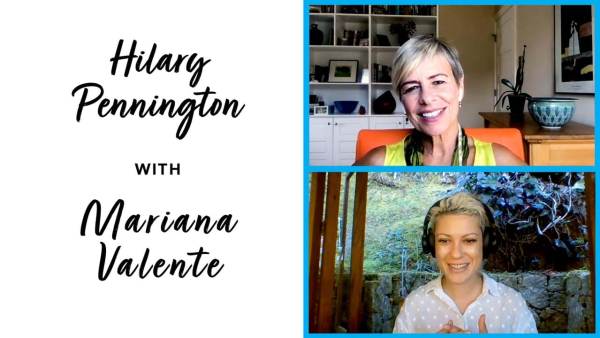
Technology and gender: Hilary Pennington with Mariana Valente
The internet is a force for good, but it must be guided by fundamental human and privacy rights and offer social protection, said InternetLab director Mariana Valente. In this way, technology can advance equality and, with the right policies in place, be used as a tool for advocates to organize.
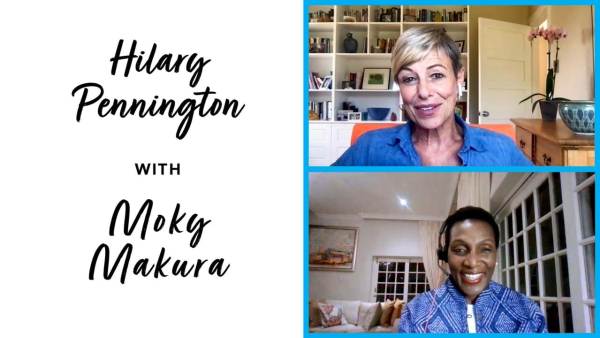
The power of storytelling: Hilary Pennington with Moky Makura
For too long, Africa has been defined in the media by stereotypes and oversimplified narratives. With Ford’s support, Africa No Filter is disrupting these narratives by empowering storytellers helping to create a nuanced, balanced view of the continent and an equitable, inclusive way of how to partner with it.
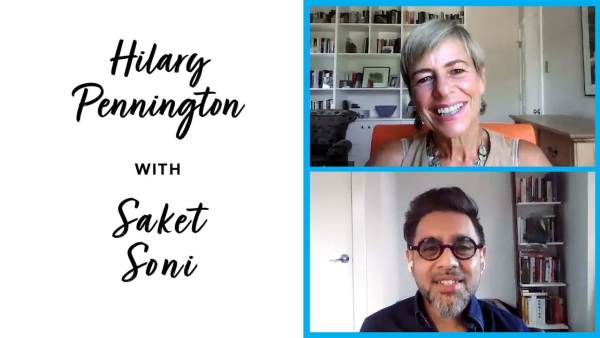
What essential workers need right now: Hilary Pennington with Saket Soni
Disasters present the opportunity to bring us together and give us the chance to reevaluate our priorities and ask what’s really important. Labor organizer Saket Soni sees COVID-19 as a prologue to other threats, like climate change. He says disaster responses need to focus on strengthening essential workers.
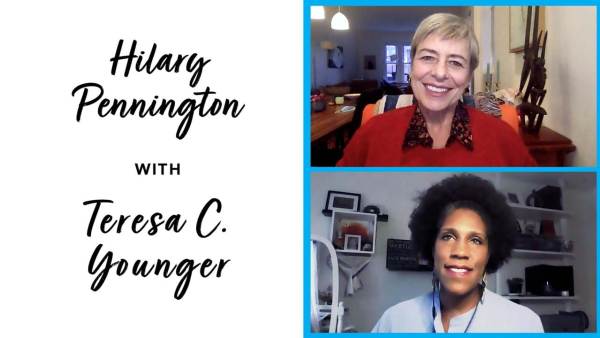
Philanthropy and Black women: Hilary Pennington with Teresa C. Younger
Social justice organizations led by women of color often receive less funding. Teresa C. Younger, CEO of the Ms. Foundation, explains why philanthropy needs to center women of color to address systemic racism and uplift women and girls of color for a more just future.
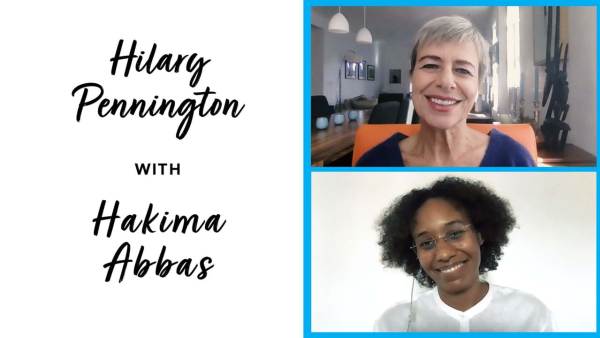
How young feminists are organizing: Hilary Pennington with Hakima Abbas
COVID-19 has impacted the way we work, but it also exacerbated gender inequality in the workplace. Hakima Abbas, of the Association for Women’s Rights in Development, believes we can prevent any further damage by including feminist leaders across the board in devising solutions.
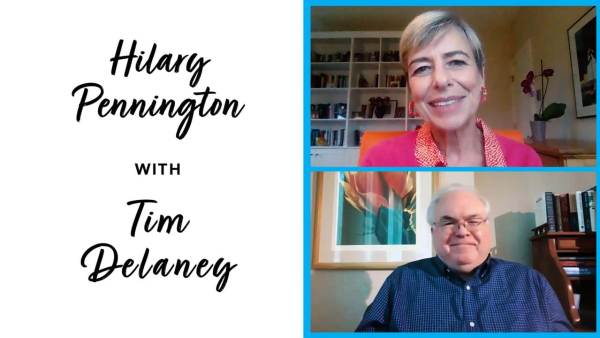
How nonprofits make an impact: Hilary Pennington with Tim Delaney
Over one million nonprofits exist in the United States, but Tim Delaney, the CEO of the National Council of Nonprofits, has an idea to make them even more impactful. To him, bringing social justice groups together can transform philanthropy for the benefit of all.
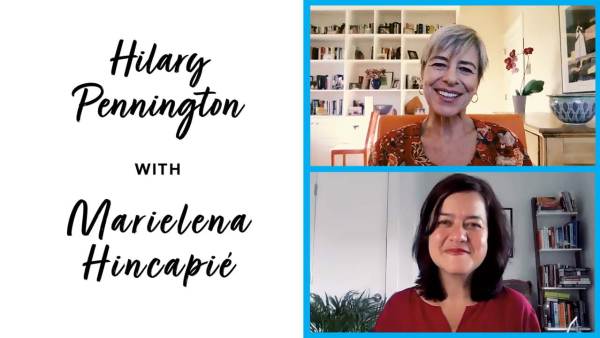
Immigrants are essential: Hilary Pennington with Marielena Hincapié
Immigration has been used as a weapon to divide the United States. The National Immigration Law Center aims to help the country understand that immigrants are not only important members of our communities and essential workers, but they are also valuable political constituencies needed to make American democracy work.
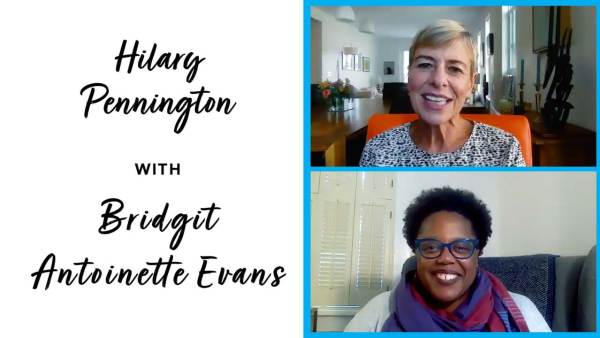
Social justice and pop culture: Hilary Pennington with Bridgit Antoinette Evans
Pop culture plays an important role in advancing social justice. Bridgit Evans of Pop Culture Collaborative produces cultural strategies that build on points of connection to ensure policy changes are not just symbolic. By finding commonalities through culture, she believes we can create a world where everyone feels they belong.
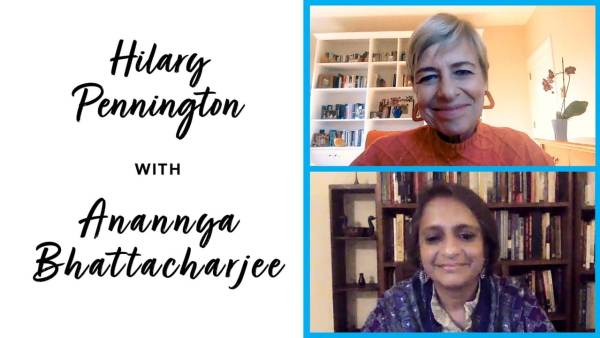
Global work needs to be local: Hilary Pennington with Anannya Bhattacharjee
While the labor movement has worked to improve the lives of garment factory workers globally, activist Anannya Bhattacharjee advocates that solutions need to start locally and come from the ground up to have a significant impact on workers’ lives.
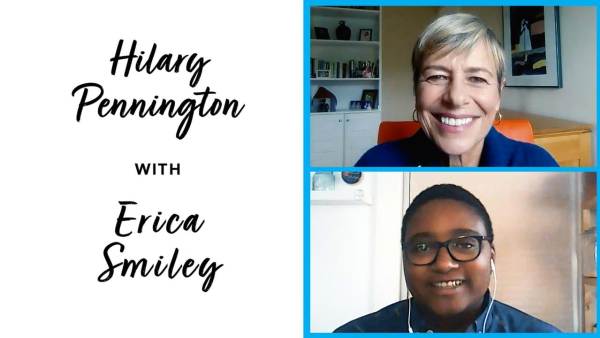
Essential workers are the economy: Hilary Pennington with Erica Smiley
The COVID-19 pandemic has dramatically changed the way we as a world work. As we face this inflection point, Erica Smiley, executive director of Jobs With Justice, believes people—especially essential workers—need to have the right to come together collectively to organize and negotiate their conditions to build a global economy that works for all.

The urgency of this social moment: Hilary Pennington with Eric Ward
We need to dismantle racism to make inclusive democracy truly possible. Eric Ward of Western States Center believes smaller movements can help support bigger waves of change. From creating cohorts of emerging leaders to encouraging small group interactions can help protect democracy and put an end to white supremacy.